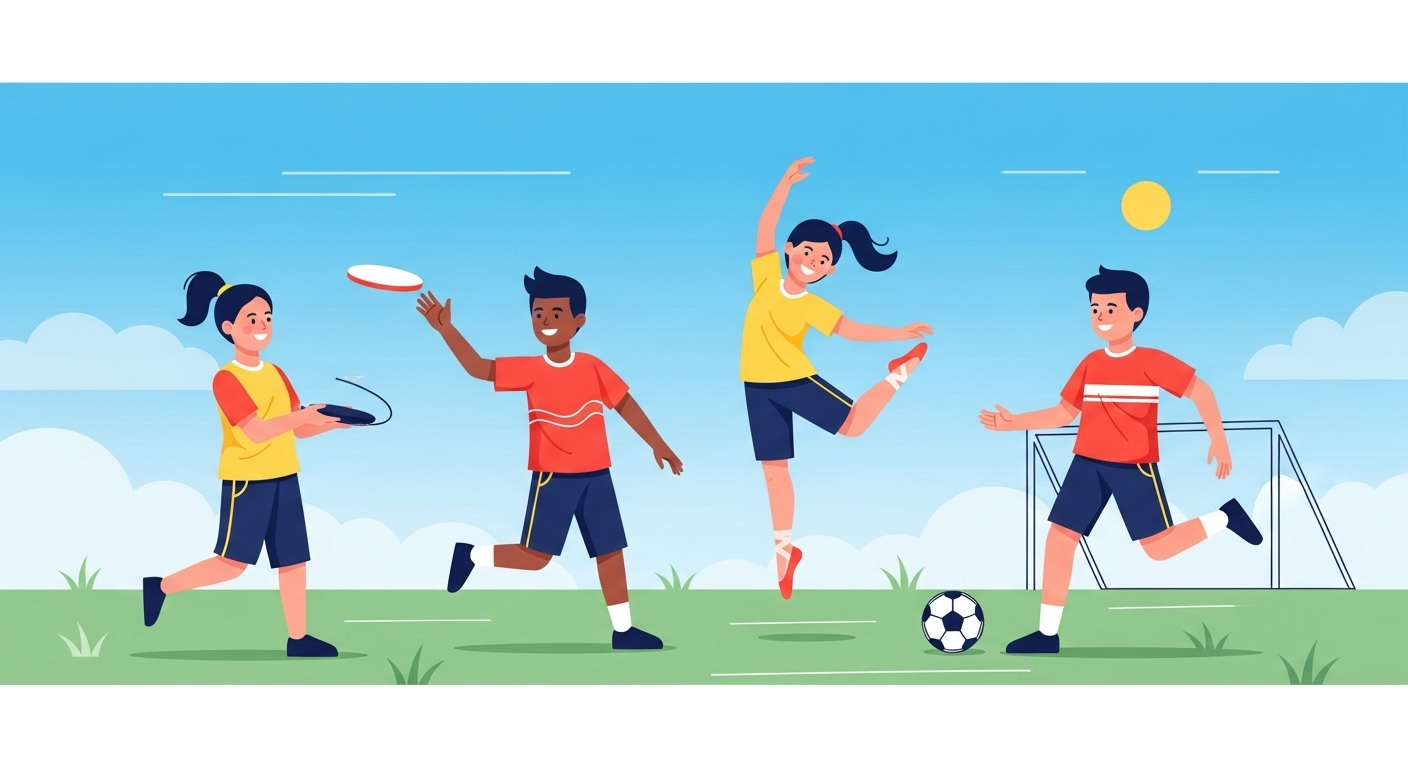Why Moving Your Body Helps Your Mind and Mood
You might think exercise is just for building muscles or staying in shape, but it does so much more. Being active helps your body, brain, and mood! Kids who are active often get better grades, handle stress better, sleep more soundly, and feel happier. Sounds great, right?
Question: Can you think of reasons not to exercise? Write them down.
Task: On one side of a paper, list the reasons to exercise. On the other, write reasons not to.
Now, let’s explore why staying active is such a powerful way to live your best life!
How Moving Boosts Your Mood
Ever noticed how you feel better after riding your bike, dancing, or just taking a walk? That’s because moving your body makes your brain release endorphins—natural chemicals that make you feel happy. It’s like your brain’s way of saying, “Thanks for moving!”
Why Exercise Is Good for You
Exercise isn’t just about looking strong—it’s about feeling great!
Moving helps your brain work better. You think more clearly, remember things, and learn faster. It boosts your mood, helping you feel happier and less stressed. Your heart works harder, sending oxygen and nutrients to your brain and body.
The Key? Make it fun! Find activities you love so exercising doesn’t feel like a chore.
Try This: Next time you’re feeling down, go for a walk or play a sport you enjoy. See how it lifts your mood!
Stay Active with Friends
Being active isn’t just about you—it’s a fun way to spend time with others! Whether it’s playing soccer, joining a dance class, or running around at the park, exercise helps you bond with friends.
When you’re active with others, you:
Learn teamwork. Share fun experiences that build friendships. Feel like you belong, which helps your emotional health.
Ask Yourself: What activities can you do with your friends or family to have fun together?
Moving Helps You Do Better in School
Did you know exercise can make school easier? Moving helps your brain get more oxygen, which improves focus, memory, and problem-solving skills.
For example: A quick game of basketball or a jog before school can help you concentrate on math or finish homework faster.
Try This: Take short breaks while studying to stretch or do jumping jacks. It can refresh your brain!
How Exercise Helps Your Mental Health
Exercise isn’t just good for your body—it’s great for your mind too!
It reduces stress and anxiety. It helps you sleep better, which improves your mood and focus. It gives you a sense of accomplishment, making you feel proud of yourself.
Think About This: What activities make you feel calm or happy? Maybe it’s yoga, swimming, or kicking a ball around.
Stress Relief Through Movement
Feeling stressed about a test or a busy day? Moving your body can help! Activities like walking, biking, or stretching relax your body and take your mind off your worries.
Pro Tip: A 10-minute walk outside can do wonders for your mood—try it!
Create Your Movement Plan
Everyone’s different, so find what works for you:
What do you like? Think about what makes you smile—sports, dancing, or tossing a frisbee.
What fits your day? Could you walk to school, stretch during homework, or play outside after dinner?
How does it feel? Notice how moving makes you feel happier or more focused.
You’ve Got This!
Being active isn’t about being the fastest or best—it’s about feeling good. Whether it’s dancing, hiking, or just taking a walk, every step counts toward a healthier, happier you.
So, what will you try today? Give it a go and see how it makes you feel!


